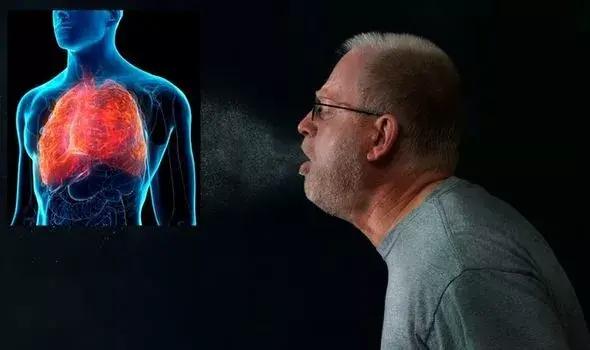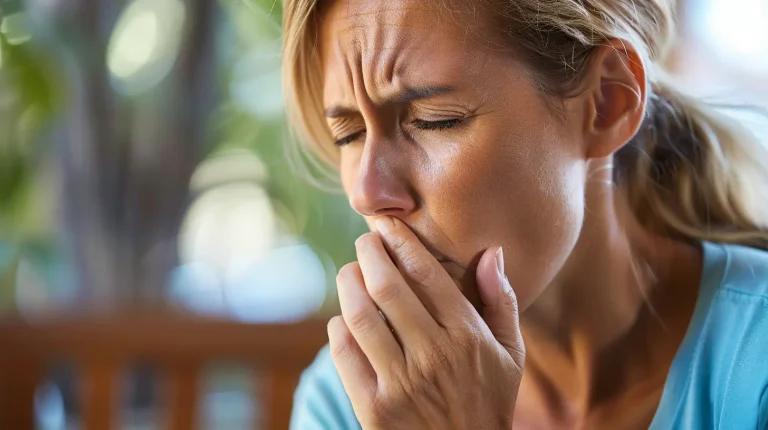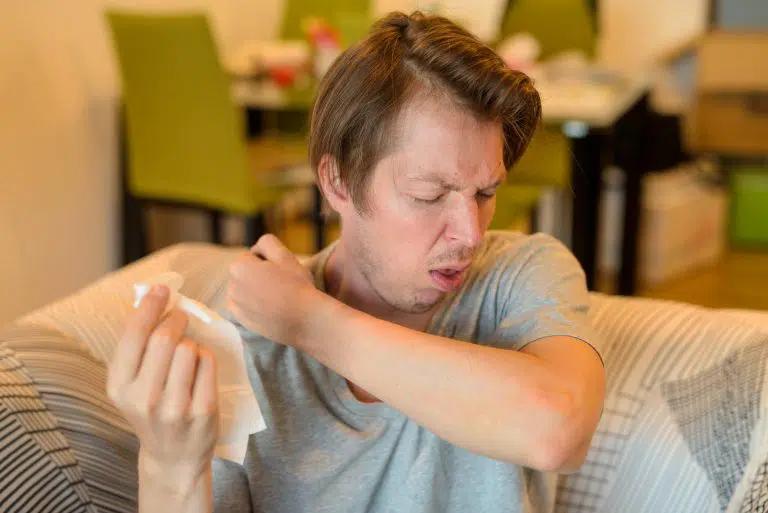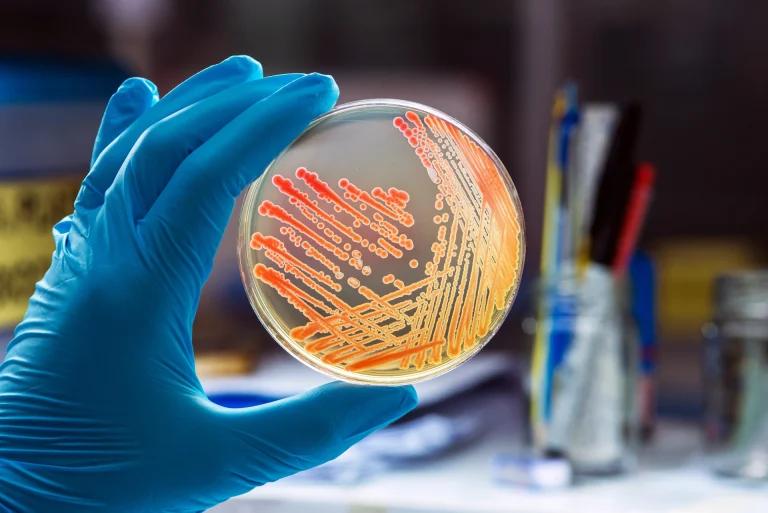We’ve all been there – that annoying chesty cough, congestion, and the general feeling of unwellness that comes with a chest infection. Can you catch a chest infection from someone else? This is a common question many of us have, especially during cold and flu season. Understanding how these infections spread and what causes them is useful for protecting our health and the health of those around us. So let’s dive in and look at the mystery behind these common yet potentially serious respiratory illnesses.
What is a chest infection?
Definition
A chest infection is an inflammation of the lungs or airways caused by bacteria, viruses, or, in rare cases, fungi. It affects the respiratory system, which includes our airways and lungs. When we say we have a chest infection, we usually refer to an infection in part of this system. These infections can range from mild to severe, with some clearing up on their own while others can be life-threatening.
Types of chest infections
There are two main types of chest infections: bronchitis and pneumonia. Bronchitis is an infection of the larger airways, often caused by a virus. Pneumonia, on the other hand, affects the smaller air sacs in the lungs and is typically caused by bacteria. Both types can be serious, especially for young children, the elderly, and those with weakened immune systems.
Common symptoms
The symptoms of a chest infection can vary depending on whether it’s viral or bacterial. Common signs include a persistent cough, which may produce yellow or green phlegm (mucus). We might also experience wheezing, shortness of breath, and chest pain or discomfort when breathing. A high temperature, rapid heartbeat, loss of appetite and fatigue are also typical. Sometimes, we might notice a bluish colour around our lips due to a lack of oxygen. For babies with bronchiolitis, symptoms can include a blocked or runny nose, difficulty feeding, and irritability. It’s important to note that symptoms can develop gradually or suddenly, ranging from mild to severe.
How do chest infections spread?
Airborne transmission
We can catch a chest infection through airborne transmission through of fine aerosol particles. These tiny particles can float and travel in air currents, potentially infecting people who inhale them at both short and long distances from the infected person. When we sneeze, cough, or even talk, we release these infectious particles into the air. Surprisingly, these particles can linger in the air for minutes to hours, depending on factors like ventilation and environmental conditions.
Direct contact
Another way we can catch a chest infection is through direct contact. This occurs when we come into close contact with an infected individual. Droplets from their mouth or nose may contaminate hands, cups, toys, or other items. If we touch these contaminated surfaces and then touch our nose or mouth, we risk infection.
Risk factors
Several factors put people at increased risk of catching a chest infection. Age plays a significant role, with babies, young children, and older adults being more prone due to their developing or weakening immune systems. Living in crowded places like military barracks, prisons, or nursing homes also raises the risk. Smoking cigarettes can make it harder for us to clear mucus from our airways while using drugs or alcohol can weaken our immune system. Certain long-term health conditions, such as brain disorders, HIV/AIDS, or lung diseases, can also make us more vulnerable to chest infections.
Causes of chest infections
Viral causes
We can catch a chest infection from various viruses that affect our respiratory system. The most common culprits of a viral infection include respiratory syncytial virus (RSV), influenza virus, and parainfluenza virus. These viruses are particularly troublesome for young children and older adults, as our bodies may have a harder time fighting them off. In recent times, we’ve also seen that coronaviruses, such as SARS-CoV-2 which causes COVID-19, can lead to severe pneumonia even in younger, otherwise healthy individuals.
Bacterial causes
While viruses cause most cases of bronchitis, bacteria are often responsible for pneumonia. The most frequent bacterial chest infection is caused by Streptococcus pneumoniae. This bacterium can live harmlessly in our throats when we’re healthy, but if our immune system weakens, it can travel to our lungs and cause an infection. Other bacteria like Mycoplasma pneumoniae and Legionella can cause what we call ‘atypical’ pneumonia.
Environmental factors
Our environment plays a significant role in our susceptibility to chest infections. Exposure to indoor and outdoor air pollution, including particulate matter, coal dust, and gasses like ozone and nitrogen dioxide, can increase our risk. Chronic Obstructive Pulmonary Disease (COPD) is a chest infection caused by air pollution and smoking. We’re particularly vulnerable if we live in areas with poor air quality or near industrial zones. Household air pollution from using biomass fuels for cooking in poorly ventilated spaces also poses a significant threat. Additionally, exposure to tobacco smoke, whether direct or secondhand, can weaken our lungs’ natural defences against infections.
Prevention
Hygiene
We can take several steps to reduce our risk of catching a chest infection. Good personal hygiene is crucial. We should always cover our mouths when coughing or sneezing and wash our hands regularly. It’s important to dispose of used tissues immediately to prevent the spread of germs. By maintaining proper hand hygiene, we can significantly decrease our chances of contracting or spreading respiratory infections, including pneumonia.
Vaccination
Vaccination plays a vital role in preventing chest infections. We should consider getting a flu vaccine and pneumococcal vaccine for protection against influenza and pneumococcal infections, especially if we’re at higher risk. These vaccines can help protect us from severe respiratory illnesses. For children, following the recommended vaccination schedule is essential to build immunity against various pathogens that can cause chest infections.
Lifestyle changes
Making certain lifestyle changes can strengthen our defences against chest infections. If we smoke, quitting is one of the best things we can do to protect our lungs. Smoking damages our lungs and weakens our ability to fight off infections. We should also limit alcohol consumption, as excessive drinking can weaken our lungs’ natural defences. Maintaining a healthy, balanced diet can help boost our immune system, making us less susceptible to developing chest infections.
Conclusion
Chest infections are a common yet potentially serious health concern that we should all be aware of. Understanding their causes, how they spread, and prevention strategies helps us to better protect ourselves and others. From viral culprits like RSV to bacterial agents such as Streptococcus pneumoniae, these infections can spread through the air or through direct contact, making good hygiene practices crucial to staying healthy. Getting vaccinated, quitting smoking, and making lifestyle changes also helps boost our immune system, protecting our overall health.
Sources
- Chest infection – NHS
- Chest infection – Nidirect
- Chest infection – Health Direct
- Signs and symptoms of chest infections – NHS
- Chest Infection: Symptoms, Treatment, and Prevention
Medical Disclaimer
NowPatient has taken all reasonable steps to ensure that all material is factually accurate, complete, and current. However, the knowledge and experience of a qualified healthcare professional should always be sought after instead of using the information on this page. Before taking any drug, you should always speak to your doctor or another qualified healthcare provider.
The information provided here about medications is subject to change and is not meant to include all uses, precautions, warnings, directions, drug interactions, allergic reactions, or negative effects. The absence of warnings or other information for a particular medication does not imply that the medication or medication combination is appropriate for all patients or for all possible purposes.









